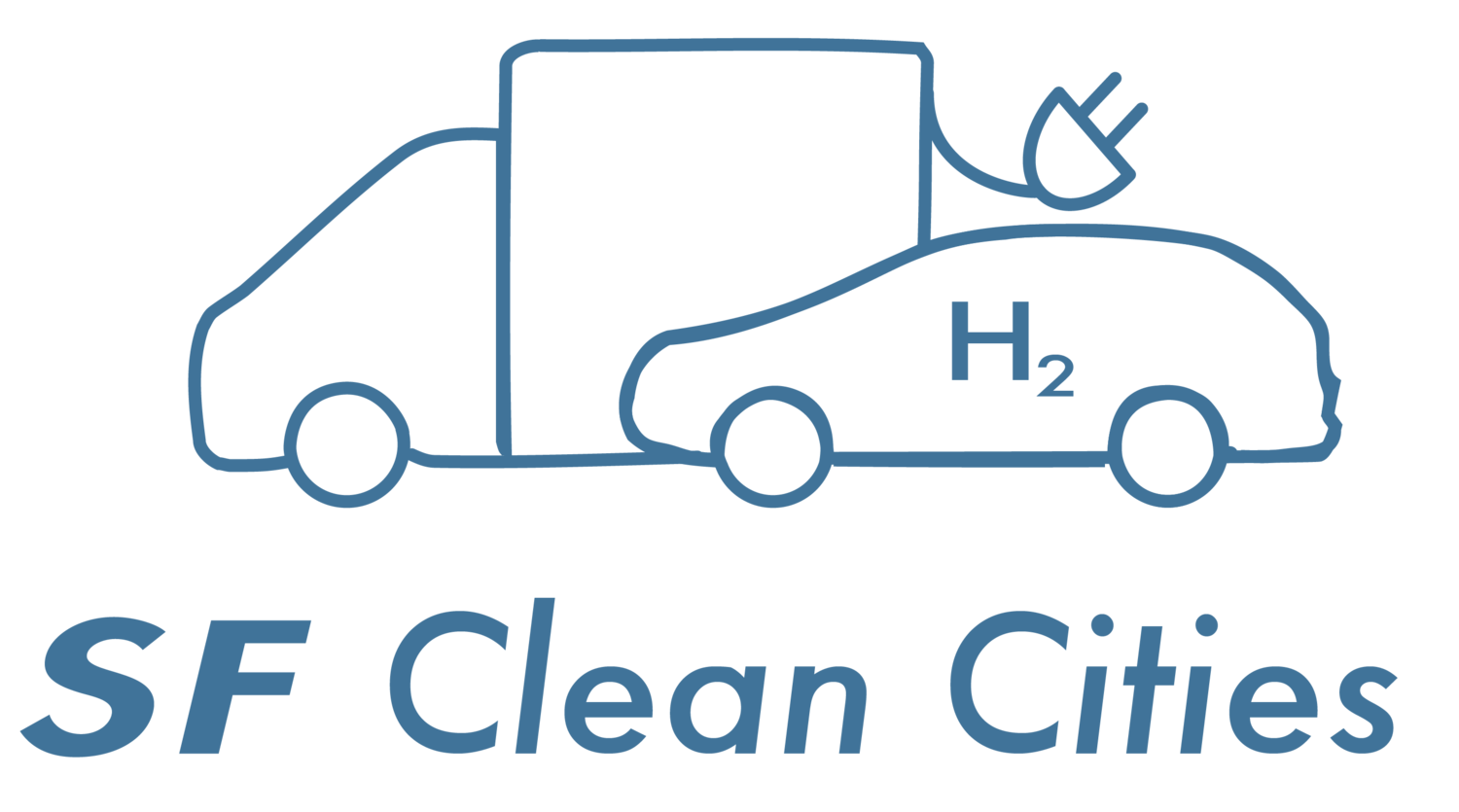Explore our current projects below
In 2022, the San Francisco Environment Department (SFE) in partnership with San Francisco Clean Cities and Communities Coalition (SFCCC) accepted a $2.4 million grant from the California Energy Commission (CEC) to implement the following four projects from San Francisco’s EV Ready Community Blueprint.
-
Project overview
Transition up to 30 app-based food delivery (e.g., Doordash, Grubhub, UberEats) workers from cars to electric bikes (e-bikes) to test the impacts e-bikes have on delivery efficiency, greenhouse gas emission reductions, traffic congestion, safety, and worker income
Collect data from delivery workers using surveys and delivery route data
Timeline
Spring 2023 to Spring 2024
Partners
GRID Alternatives, San Francisco Bicycle Coalition, and Driver’s Seat Cooperative
Additional resources
-
Project overview
Establish the City’s first EV Ombudsperson, a central point of contact for EV charging service providers and developers
Boost public awareness and remove institutional barriers to developing public charger installations
Identify new sites and hosts for more public chargers
Timeline
Spring 2023 to Summer 2025
-
Project overview
Support the development of public fast-charging plazas, deploying at least one located in or near a disadvantaged community
Conduct community listening sessions and surveys in disadvantaged communities and in multiple languages to gather feedback on plaza placement
Provide opportunities for community members to influence plaza locations
Educate disadvantaged communities about current and upcoming EV rebates and the benefits of installing EV chargers
Timeline
Spring 2023 to Summer 2025
Partners
En2Action
In recent years, SSFCCC along with SFE, have advocated for and passed several clean transportation ordinances.
-
Overview
Requires commercial parking lots and garages with over 100 parking spaces to install electric vehicle (EV) charging stations in at least 10% of the parking spaces
Applies to approximately 90 commercial parking facilities throughout the City
Timeline
The ordinance went into effect in January 2023
Applicable garages must comply or seek a waiver by January 31, 2023
Additional resources
-
Overview
Prepares the City’s building stock for upcoming EV market growth and reduces cost and other barriers to provide EV chargers to residents
Requires new residential, commercial, and municipal buildings, and major renovations, to have sufficient electrical infrastructure to simultaneously charge EVs (at Level 2 charging) in 20 percent of parking spaces provided
10% of spaces must be fully ready for EV charger installation, 10 percent must be “EV flexible” for potential charger installations/upgrades
Timeline
The ordinance went into effect in January 2018
Additional resources
-
Overview
Advances the City's commitment to reducing greenhouse gas emissions from light-duty vehicles while improving EV charging infrastructure at municipal facilities
Requires all light-duty passenger vehicles in the City fleet to be ZEVs by 2022
For vehicles parked on City owned facilities:
75 percent of vehicles must be zero emission vehicles (ZEVs)
Up to 25 percent may be plug-in hybrid electric vehicles (PHEVs) with a waiver due to charging/operational challenges
For vehicles parked on non-City owned facilities Departments must:
Make every effort to purchase/lease a ZEV
Obtain a waiver to purchase/lease PHEV due to charging/operational challenges; no cap on how many PHEVs may be procured
Police safety departments and emergency response vehicles are currently exempt from requirements
Timeline
SFCCC is continuing to work with fleet managers to meet ordinance requirements
Additional Resources
SFCCC is developing the citywide MD/HD Zero-Emission Vehicle (ZEV) Blueprint. The Blueprint will guide the creation of an affordable and convenient charging network for 10,000 MD/HD ZEVs by 2030. The Blueprint focuses on MD/HD ZEV adoption for all fleets, large and small, ensuring none are left behind.
Project overview
Collect data to take inventory and analyze inter-regional and local MD/HD fleets
Develop a Charging Infrastructure Map to identify optimal MD/HD charging locations to serve the municipal fleet and small- and medium-sized commercial fleet
Identify actions, policies, and innovations to make the chargers on the Charging Infrastructure Map a reality
Timeline
Summer 2021 to Fall 2024
Partners
San Francisco Central Shops, Arup, SKS Consulting







